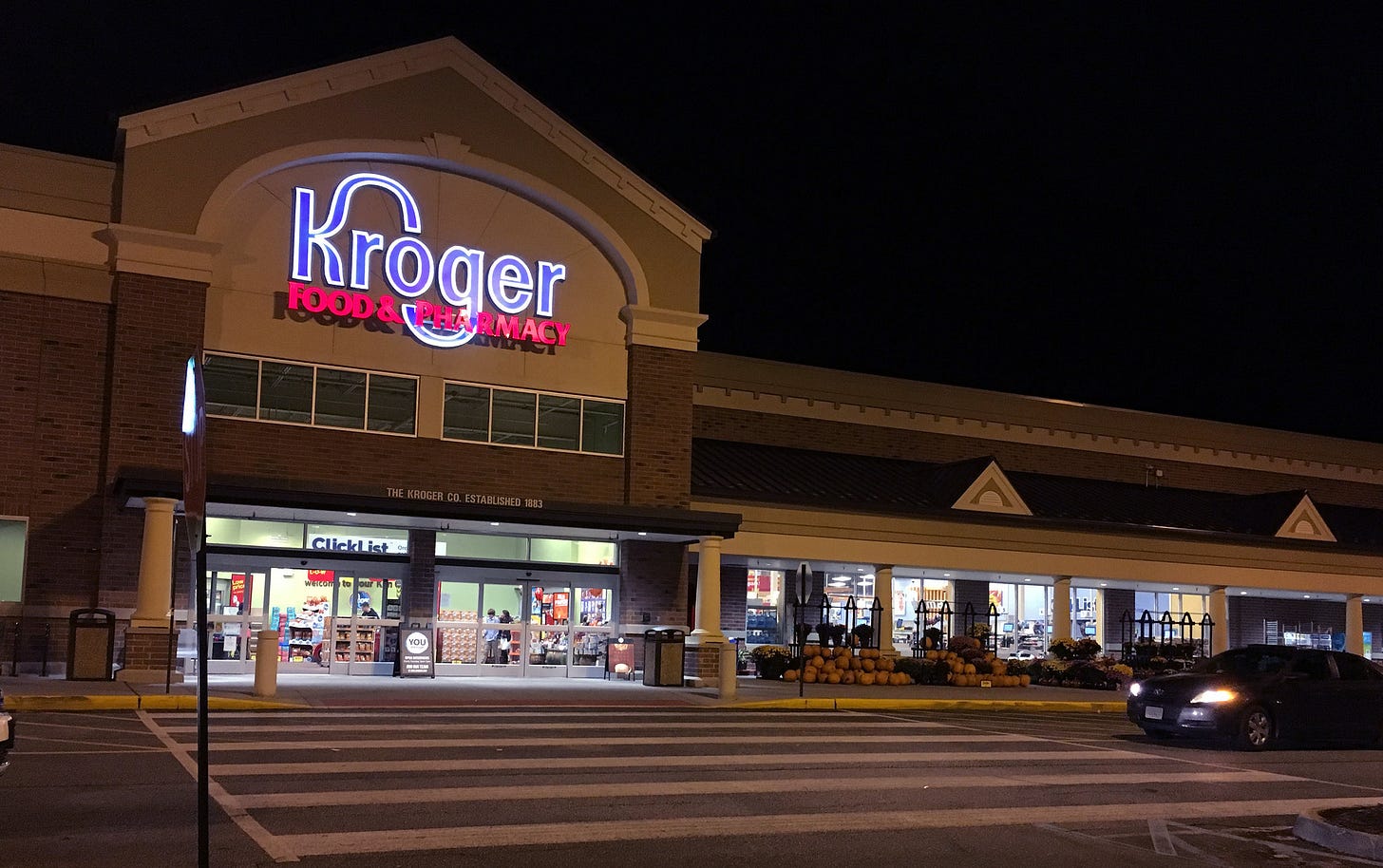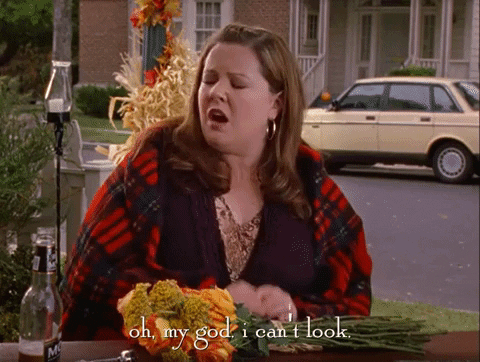Ghosts in Kroger's Kitchen
Taxpayers are paying for big corporations to destroy local restaurants.

This is Boondoggle, the newsletter about corporations ripping off our states and cities. If you’re not currently a subscriber, please click the green button below to sign up. Thanks!
Over the summer, I saw that Kroger, the big grocery store chain, received a 15-year, 75 percent sales tax exemption for setting up two new data centers in Ohio. As readers of this newsletter hopefully know, subsidizing data centers is for suckers, so it struck me as a bad move for Ohio, but not more worrisome than the usual data center subsidies hoovered up by big tech companies.
A new bit of information, though, makes those subsidies more ominous: Kroger is moving into what’s known as the “ghost kitchen” business.
That’s bad news for local, independent restaurants and other entities attempting to serve or deliver food. Ohio taxpayers are helping a massive retailer potentially bury their favorite corner eatery.
Ghost kitchens are as spooky as they sound. (Just in time for Halloween!) The model involves big corporations using the data they collect through their various lines of business to create delivery-only food operations that are run out of random spaces. They hide the fact that they aren’t actual restaurants and are backed by big investors and corporations by employing a web of shell companies and building web pages made to look like those from real, independent restaurants.
The most obvious purveyors of ghost kitchen-built foods are the big delivery app companies — UberEats, GrubHub, and Doordash — which use the data they collect doing deliveries for restaurants, and which they don’t subsequently share with those restaurants, to see what sort of items sell best and when.
Then, much like Amazon weaponizes the data it collects from small businesses that sell on its platform to create its own products that it uses to bury those same businesses, the delivery apps use the data they collect from restaurants to create their own, delivery-only food outlets, with the aim of cutting real restaurants out of the business entirely. (This model of operating a platform and then also competing on it should just be illegal, incidentally.)
Though pitched as a way for chefs and restauranteurs to test drive new concepts, ghost kitchens are really just a way for massive companies to consolidate the restaurant industry, driving your local, unique eateries under in favor of what my colleague Moe Tkacik has dubbed “an online food court of SEO-optimized, Cisco-robot produced slop.”
And other massive companies are jumping in. Amazon, for instance, has invested in a delivery and ghost kitchen company called Deliveroo.
Kroger, meanwhile, is the largest grocer in the U.S., and the second-largest in-person retailer after Walmart. It also owns Harris Teeter and a bunch of other grocers, and it has reams of data, along with already existing hot food kitchens in its stores, all of which it can use to build out a delivery business. Kroger is partnering with an outfit called ClusterTruck that uses algorithms to remove the so-called “pain points” of ordering food.
These are massive companies moving into the business of providing one-off, local meals. UBS released a big report on these trends, entitled “Is the Kitchen Dead?” that says the rise of these delivery companies spells big trouble for small restaurants and grocers.
It’s also bad for workers. As this piece details, ghost kitchen sites are going to depend on low-wage kitchen workers and low-wage drivers who don’t receive benefits to pump out delivery food.
Like so much I discuss in this newsletter, taxpayers — in this case in Ohio — are subsidizing the destruction of small, local, independent businesses in order to benefit the biggest corporations in the country. The smaller outlets trying to compete with Kroger aren’t receiving tax breaks for their equipment purchases, putting them at a competitive disadvantage. If Kroger sees a big opportunity in delivery and ghost kitchens, and therefore wants to collect and store the reams of data with which to build that businesses, it doesn’t need that activity subsidized.
Kroger is also headquartered in Ohio, so likely doesn’t need incentives to build new facilities there, since the cost of starting from scratch in some other locale would probably be higher, even in the absence of subsidies. (Ohio has a habit of doling out giveaways to companies already based there.)
If you care about unique local communities, this is all quite terrifying. Already, public policy preferences big box stores, the major dollar stores, and nationwide supermarket chains over independent merchants and grocers. Helping big companies make inroads into the local food business is one more way in which the character of local areas will be stripped away, leaving everywhere looking like everywhere else, with big corporations providing all the same goods and paying the same low wages.
SHAMELESS SELF-PROMOTION: I talked about the Google antitrust case, which I wrote about in last week’s issue, on The Rick Smith Show and KNX Radio in Los Angeles. Click the links to listen.
ONE MORE THING: This piece from WBEZ’s Natalie Moore and the Better Government Association’s John Lippert about Amazon subsidies in Illinois is really worth the time. Not only does it get into how prevalent secrecy measures around these negotiations have become — something I complain about a lot, as you know — but it’s a really stark example of how corporate tax giveaways can drive racial inequality (something else I’ve written about a bit).
To wit: “Records show the three largest incentive packages Amazon received — totaling $512 million — all came from predominantly Black suburbs. By contrast, the company built warehouses in at least seven mostly white communities that reported offering no public incentives at all.”
Not good! Read the whole piece here and be horrified by just about every line.

Thanks for reading this edition of Boondoggle. If you liked it, please take a moment to click the little heart under the headline or below. And forward it around to friends, family, or neighbors using the green buttons. Every click and share really helps.
If you don’t subscribe already and you’d like to sign up, just click below.
Finally, if you’d like to pick up a copy of my book, The Billionaire Boondoggle: How Our Politicians Let Corporations and Bigwigs Steal Our Money and Jobs, go here.
Thanks again!
— Pat Garofalo



Thanks for getting the word out about ghost kitchens. It’s our ingenuity and innovation that powers America’s engine, not Corporate tactics. I hope people will increasingly see this and respond by being more selective with how their dollars are spent.